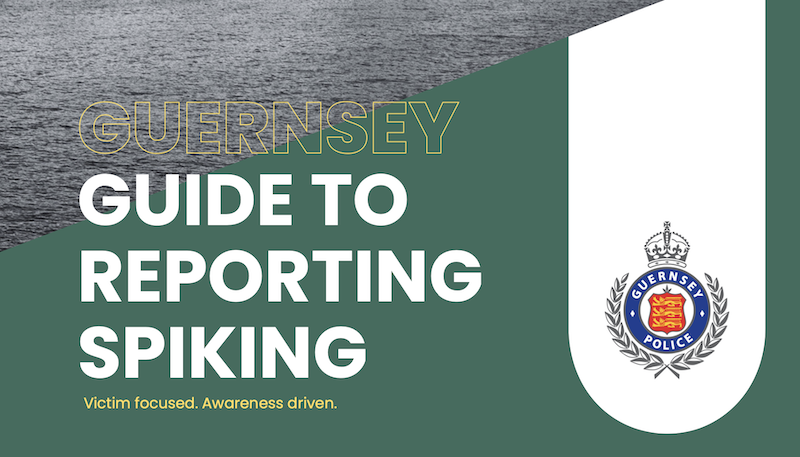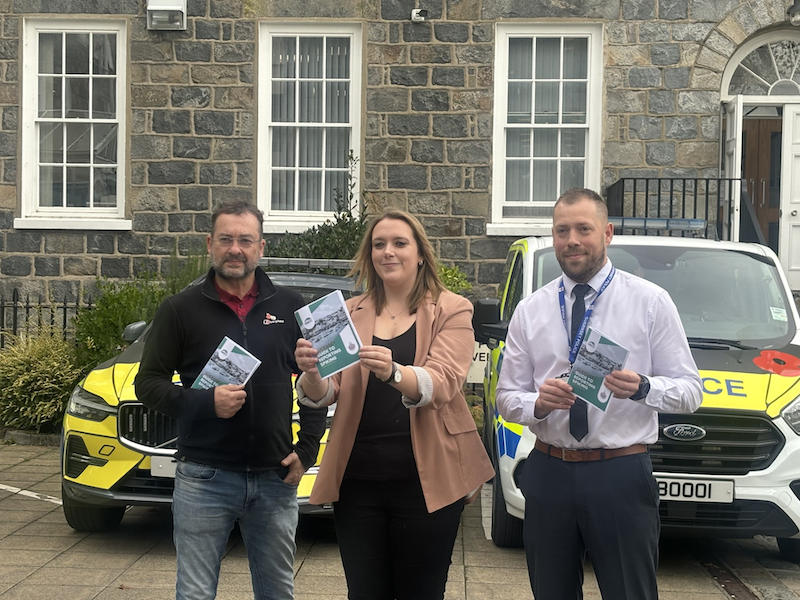


With more than 100 alleged incidents in Guernsey in five years, a new guide has been launched to help those who feel they've been affected by 'spiking'.
The 'Guernsey Guide to Reporting Spiking' is a collaboration between local charity SafetyNet, Guernsey Police, Crimestoppers, Willow House, and Victim and Witness Support.
The guide comes following growing concerns over spiking incidents in recent years, with Guernsey Police receiving 17 reports so far this year (2024), bringing the total number since 2019 to 107.
No cases of spiking have been confirmed through investigations though.
SafetyNet Chair Poppy Murray wanted to find out how more than 100 people could report a spiking incident over that five year period, yet none be proven.
“SafetyNet receives more messages about suspected spiking than sexual assault and harassment combined," she said. "This includes reports from parents and husbands/wives whose children/partners have ended up in hospital from their symptoms.
“It is extremely unlikely that Guernsey is the only country in the world where spiking has never happened. We think it is much more likely that spiking is difficult to prove in Guernsey, as it is in the UK and Jersey also. We wanted to find out why, so we met with Guernsey Police earlier this year to try to understand the barriers. Our meeting with Guernsey Police was extremely insightful, and we were pleased to see that members of the public have several options for reporting spiking, including ways to report anonymously.
“We hope that the guide will encourage more people to report suspected spiking in whatever way they feel most comfortable, and to get support from local services.”

Pictured (l-r): Simon Allum; SafetyNet Trustee, spiking victim, and director of Pingquay, Poppy Murray; SafetyNet Director, and Thomas Lowe; Detective Sergeant for Guernsey Police.
The guide outlines several ways to report suspected spiking, including speaking directly to the Guernsey Police, reporting anonymously to Crimestoppers or the Spike Report, or by seeking support from local services like Willow House and Victim and Witness Support.
Guernsey Police Detective Sergeant Thomas Lowe emphasised the importance of reporting suspected spiking incidents.
“We investigate every report of suspected spiking with a victim-first approach," he said. "Although no cases of spiking have ever been confirmed in Guernsey, we follow all lines of enquiry and are led by the evidence in our unbiased investigations.
“Continued reports allow us to build a picture of the type of offending which may be occurring in the community, and generally speaking, if people don’t come forward to report an offence, we can’t tackle it. I hope the guide will help encourage continued reporting to the police, who are ready, willing, and able to support the public.”
The guide can be downloaded for free from the SafetyNet website HERE, or printed copies can be collected from various locations around Guernsey, including parish Douzaines, Pingquay, and the police station. These locations will also offer free, reusable DrinkSeals to help prevent potential drink spiking.
Comments
Comments on this story express the views of the commentator only, not Bailiwick Publishing. We are unable to guarantee the accuracy of any of those comments.